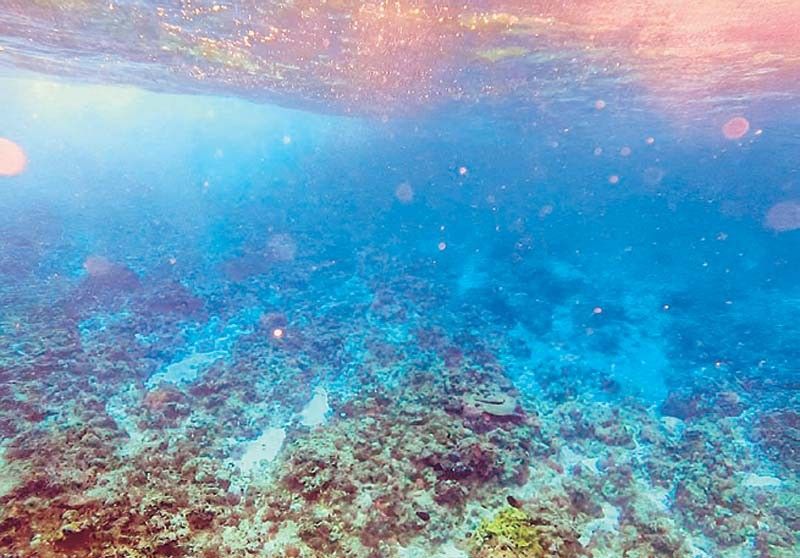Embracing a civil maritime, whole-of-society approach in West Philippine Sea

As a marine and archipelagic nation, the Philippines carries the task of implementing a comprehensive security strategy to secure its borders. As geopolitical risks evolve, so too must its approaches. This is most evident in the West Philippine Sea, where gray zone tactics range from swarming of foreign vessels, incidents of military-grade lasers, blasting of water cannons, artificial island building, and, most recently, destroying its marine biodiversity. These actions ultimately disturb the peace and stability in the maritime territory, calling for a more responsive and strategic approach.
The Western Command of the Armed Forces of the Philippines and the Philippine Coast Guard have confirmed the destructive activities in Philippine waters, causing extensive damage to the country's coral reef system, particularly in the Rozul Reef and Escoda Shoal. These incidents highlight the fact that resolving the issue is not only a military concern; it is one that requires a whole-of-society approach.
The commitment to cooperate in the West Philippine Sea is rooted in the fact that the Philippines is on the right footing. Its victory in the 2016 ruling of the Permanent Court of Arbitration made clear that illegal acts of China have caused environmental damage to the marine biodiversity in the area.
Sadly, these aggressive actions continue until today, causing severe and irreversible damage to the marine environment. For 53% of Filipinos, protecting marine resources and the environment is the top reason to strengthen efforts to defend and protect the West Philippine Sea, according to the Pulse Asia survey commissioned by the Stratbase ADR Institute in December 2022. With the developments in the West Philippine Sea, the support of Filipinos for marine environment protection will surely deepen and expand.
The evolution of security risks points out areas for improvement within the present security strategy. The reporting of the harvesting of corals has ignited a shared concern among different sectors of Philippine society. This has triggered calls for strengthened marine science research in the West Philippine Sea and intensified cooperation among national and local government agencies, as well as the international community.
In the recent public discussion organized by the Stratbase ADR Institute entitled “Implementing a Comprehensive Philippine Maritime Framework to Advance the Rule of Law,” experts echoed the need to gear up the country’s approach in the West Philippine Sea. This involves expanding the maritime strategy to a comprehensive civil maritime approach, harnessing the expertise of various sectors, as explained by Dr. Jay Batongbacal. And with the massive coral destruction, scientists are called on to have a more prominent role and support in this maritime territory.
On this, the Philippines is lucky to have partners like Australia to help in coral restoration in the West Philippine Sea. Dr. Moya Collett, Australia’s acting ambassador in the Philippines, shared that Australia has been helping conduct joint coral reef restoration and monitoring projects in Pangasinan, Zambales and Palawan. More marine environment projects are expected to follow under the newly signed Strategic Partnership between the Philippines and Australia.
Vice Admiral Alberto Carlos of the Western Command, in charge of the military efforts in the West Philippine Sea, highlighted that this is a “perfect opportunity” to put the expertise of both countries to formulate solutions to marine life destruction and degradation.
The efforts of the Armed Forces of the Philippines and the Philippine Coast Guard need to be complemented by the efforts of local communities, the academe, national government agencies, and the rest of the stakeholders in the West Philippine Sea. According to Commodore Jay Tarriela of the Philippine Coast Guard, the success of this approach will be based on the commitment and collaboration of all sectors.
A whole-of-society approach to civil maritime security will allow for a robust and united effort in the West Philippine Sea. Publicizing and civilianizing the issues have been proven effective strategies to help Filipinos understand the situation and encourage them to participate. Moreover, this also helps fight disinformation propagated by antagonistic and coercive states seeking to dismantle efforts to maintain peace and stability in the region.
As more security challenges evolve in the West Philippine Sea, the commitment, expertise, and participation of the various stakeholders are critical. There is also the realization that enforcing a rules-based international order is a shared responsibility not only of the international community but also extends to the sectors in Philippine society. This rests not in the hands of the military alone. As our efforts are rooted in protecting and promoting national interests, integrating them into a comprehensive civil maritime and whole-of-society approach is the next step forward.
Alynna Carlos is a program manager at the think tank Stratbase ADR Institute.
- Latest






















